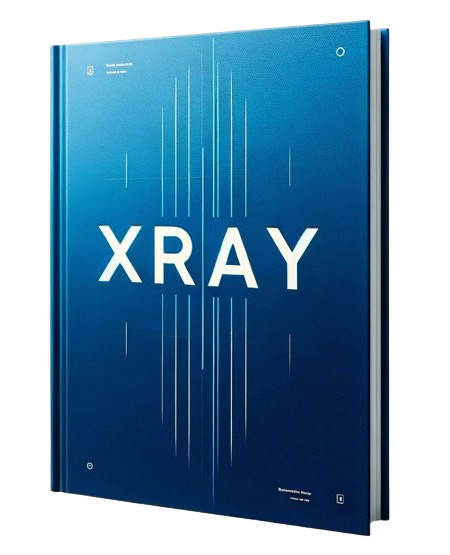Metabolism-Boosting Sweeteners for Dietary Health
Modern sweeteners influence metabolic pathways beyond simple caloric reduction. Clinical studies show that some compounds actively alter glucose uptake, cellular respiration, and fat metabolism—with steviol glycosides demonstrating up to 30% reduction in postprandial blood glucose levels and sedoheptulose increasing cellular oxygen consumption by measurable margins in controlled trials.
The challenge lies in developing sweetener formulations that can meaningfully influence metabolism while maintaining organoleptic properties and safety profiles suitable for daily consumption.
This page brings together solutions from recent research—including steviol-based compositions for fat metabolism, glucose oxidase formulations for glycemic control, sedoheptulose supplementation for cellular respiration, and strategic glucose-sweetener combinations. These and other approaches focus on creating practical, food-compatible solutions that deliver both metabolic benefits and consumer acceptance.
1. Oral Composition Containing Steviol for Modulating Lipid and Glucose Metabolism
SUNTORY HOLDINGS LIMITED, 2023
Using the plant extract steviol, found in the Stevia plant, to make compositions for reducing fat accumulation, promoting fat breakdown, reducing blood glucose levels, promoting sugar uptake, and treating fatty liver diseases. Steviol is used as an active ingredient in oral compositions like beverages to target conditions involving fat accumulation and blood sugar regulation.
2. Nutritional Supplement Comprising Sedoheptulose for Altered Carbohydrate Composition
C7 SUGAR GMBH, 2021
Using sedoheptulose, a rare seven-carbon sugar, as a nutritional supplement to improve energy metabolism and reduce the glycemic load compared to traditional carbohydrates like glucose and fructose. The supplement can be added to foods and drinks to balance out the carbohydrate profile by increasing the sedoheptulose content. This method allows creating healthier products with a lower ratio of common carbohydrates to sedoheptulose.
3. Sweetener Composition Combining Rebaudioside A with Powdered Hoodia
SUCRAZIT LTD., 2021
Ready-to-use sweeteners that combine the plant-based non-caloric sweetener rebaudioside A, known as stevia, with a small amount of powdered Hoodia, a plant traditionally used to suppress appetite. The sweetener compositions aim to provide a ready-to-use, healthier sweetener option that can be easily integrated into a regular diet while potentially aiding weight management.
4. Compositions Containing Steviol Glycosides for Oral Ingestion
PureCircle USA Inc., 2020
Use of stevia sweeteners to reduce blood sugar levels in diabetes patients. The compositions contain steviol glycosides, natural sweeteners derived from the stevia plant, that can be orally ingested to help manage blood sugar levels in type 1 and type 2 diabetes.
5. Beverage Composition with Fat Decomposition Component and Low-Calorie Sweetener
SHIN JOO YEON, 2020
A low-calorie beverage composition containing a component that aids in fat decomposition along with a low-calorie sweetener. The beverage aims to make a sweetened drink with fat burning properties without increasing calories. The fat decomposition component can be lemon balm extract, Garcinia cambogia extract, conjugated linoleic acid, or green tea extract. The sweetener is a low-calorie alternative like sucralose, erythritol, stevioside, or aspartame. The beverage can further contain flavorings, acids, and salts to mask the unique taste of the fat decomposition component.
6. Composition Comprising Sedoheptulose for Modulating Cellular Oxygen Consumption and Carbohydrate Metabolism
C7 SUGAR GMBH, 2019
Use of sedoheptulose as a nutritional inducer of cellular oxygen consumption, a nutritional inhibitor of extracellular acidification, glycolysis and lactate formation, and reducer of glycemic load. Sedoheptulose can be added to food products to improve energy metabolism and reduce the C6/C7 carbohydrate ratio.
7. Nutritional Composition Incorporating Sedoheptulose for Modulating Metabolic Pathways and Carbohydrate Ratios
C7 SUGAR GMBH, 2018
Use of sedoheptulose in nutritional supplements and food products to improve metabolism and reduce glycemic load. The sedoheptulose provides nutritional benefits by increasing cellular oxygen consumption, inhibiting glycolysis and lactate formation, and reducing extracellular acidification. It also balances carbohydrate ratios and provides anti-inflammatory effects. Adding sedoheptulose to food products like drinks, snacks, and sweeteners can improve their nutrition profile.
8. Sweetener Composition with D-Alfa Ketose and Slowly Digestible Polysaccharides
CJ CHEILJEDANG CORP, 2017
Sweetener composition for reducing diabetes that contains D-alfa ketose (like D-allulose) along with slowly digestible polysaccharides or anti-digestive polysaccharides. This composition gradually increases blood sugar levels after eating to prevent hyperglycemia in diabetics. It also avoids hypoglycemia by providing sugar slowly. The composition can further contain high intensity sweeteners like stevia extracts or sucralose.
9. Sweetener Composition with Sugar Absorption Inhibitors and High-Intensity Sweeteners
CJ CHEILJEDANG CORP, 2016
Sweetener composition for preventing and improving obesity that contains glucose or D-fructose sugar solution along with inhibitors of sugar absorption. The composition aims to provide a healthier sweetener option for obesity prevention and treatment by using sugars like D-psicose, xylose, arabinose, ribose, xylitol, and erythritol that inhibit sugar absorption. The composition also includes high intensity sweeteners like stevioside, sucralose, aspartame, mangosteen extract, licorice extract, thaumatin, etc. to enhance sweetness without adding excess calories. The sugar inhibitors are present in amounts ranging from 0.01 to 200 times the weight of the sugars to inhibit absorption.
Get Full Report
Access our comprehensive collection of 9 documents related to this technology
